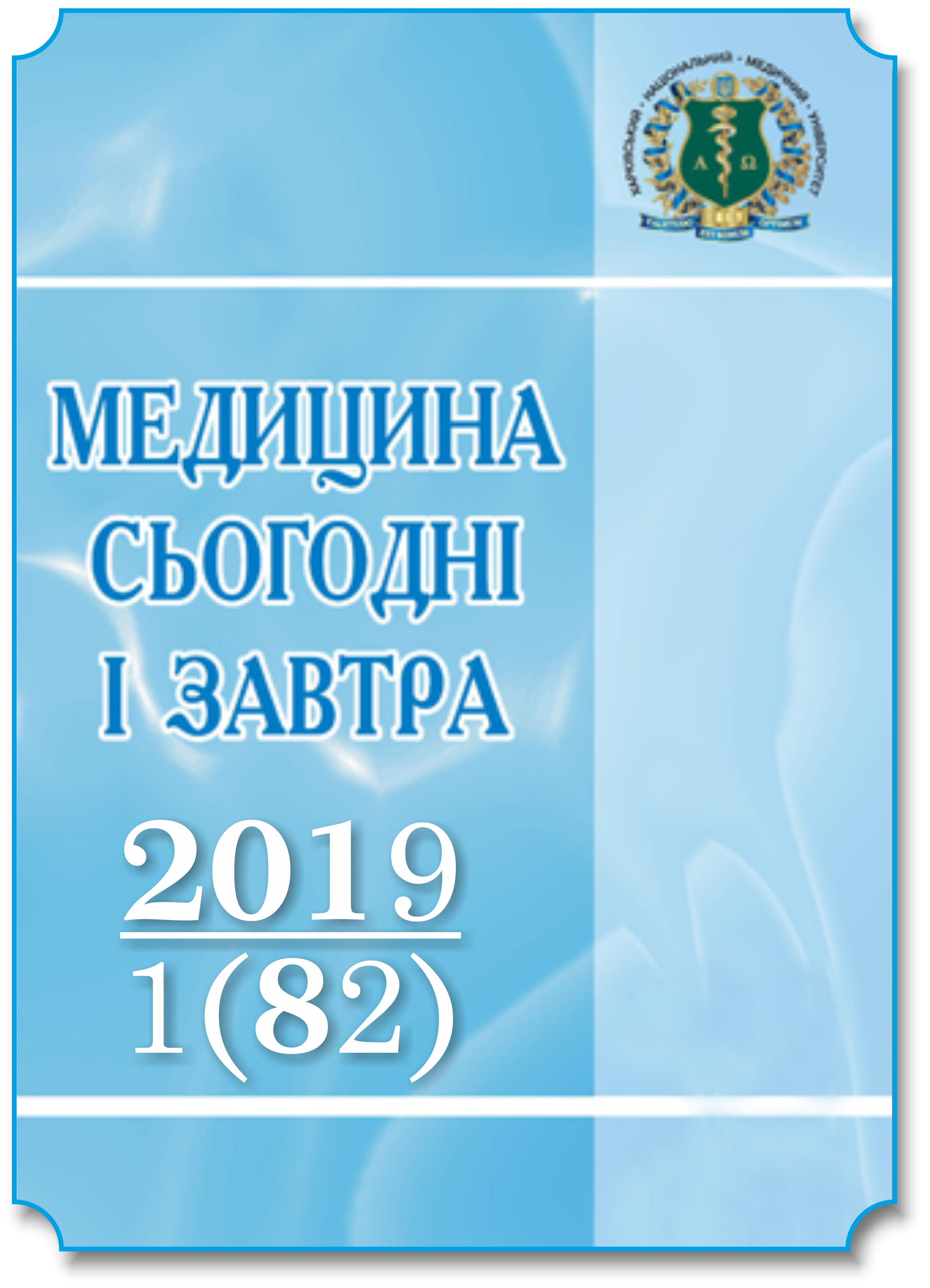Abstract
On the basis of the Ukrainian Scientific and Practical Center for Endocrine Surgery, Transplantation of Endocrine Organs and Tissues of the Ministry of Health of Ukraine, 200 patients with diagnoses of hypothyroidism and hyperthyroidism in the state of therapeutic compensation of endocrine dysfunction and manifestations of psychoendocrine syndrome were examined. In order to establish and compare copying patterns of nosogenic stress in psychoendocrine syndrome against the background of hypothyroidism and hyperthyroidism, we used a structured psychodiagnostic interview based on the Lazarus copying test. It was established that patients with hypothyroidism used the strategies of «Distancing» (54 people), «Self-control» (26 people), «Escape–avoidance» (67 people) and «Problem-solving planning» (23 people) were used more often than patients with hyperthyroidism. Moreover, the strategies «Confrontation» (77 people), «Social support search» (34 people) and «Positive revaluation» (43 people) were more often presented for patients with hyperthyroidism than for people with hypothyroidism. Establishing copying strategies for nosogenic stress in patients with endocrine disorders of the thyroid gland is an important step towards developing correct systems and techniques for psychological correction of behavioral and psychological disorders that are obligatory in patients of this category.
References
Mizutani K., Nishimura K., Ichihara A., Ishigooka J. (2014). Dissociative disorder due to Graves’ hyperthyroidism: a case report. General Hospital Psychiatry, № 36 (4), pp. 450.
Zhabenko Ye.Iu. (2012). Osobennosti psikhicheskikh i psikhosomaticheskikh rasstroistv pri psikhoendokrinnom i metabolicheskom sindromakh [Features of mental and psychosomatic disorders in psychoendocrine and metabolic syndromes]. Ukrainskii nevrolohicheskii zhurnal – Ukrainian Neurological Journal, № 1, pp. 62–65 [in Russian].
Ischuk V.V. (2016). Psychotherapy system of psychoendocrine syndrome in the thyroid gland and the adrenal cortex pathology. Journal of Education, Health and Sport, vol. 6 (12), pp. 875–882.
Degner D., Meller J., Bleich S., Schlautmann V., Rüther E. (2001). Affective disorders associated with autoimmune thyroiditis. The Journal of Neuropsychiatry and Clinical Neurosciences, № 13, pp. 532–533.
Osterweil D., Syndulko K., Cohen S.N., Pettler-Jennings P.D., Hershman J.M., Cummings J.L. (1992). Cognitive function in nondemented older adults with hypothyroidism. Journal of the American Geriatrics Society, № 40, pp. 325–335.
Roberts L.M., Pattison H., Roalfe A., Franklyn J., Wilson S., Hobbs F.D., Parle V. (2006). Is subclinical thyroid dysfunction in the elderly associated with depression or cognitive dysfunction? Ann. Intern. Med., vol. 145, pp. 573–581.
Korostii V.I., Havenko V.L., Samardakova H.A., Kozhina A.M. (2000). Psikhicheskiie narusheniia pri somaticheskikh i endokrinnykh zabolevaniiakh [Mental disorders in somatic and endocrine diseases]. Kharkiv, 29 p.
Kelderman-Bolk N., Visser T.J., Tijssen J.P., Berghout A. (2015). Quality of life in patients with primary hypothyroidism related to BMI. European Journal of Endocrinology, vol. 173 (4), pp. 507–515.

